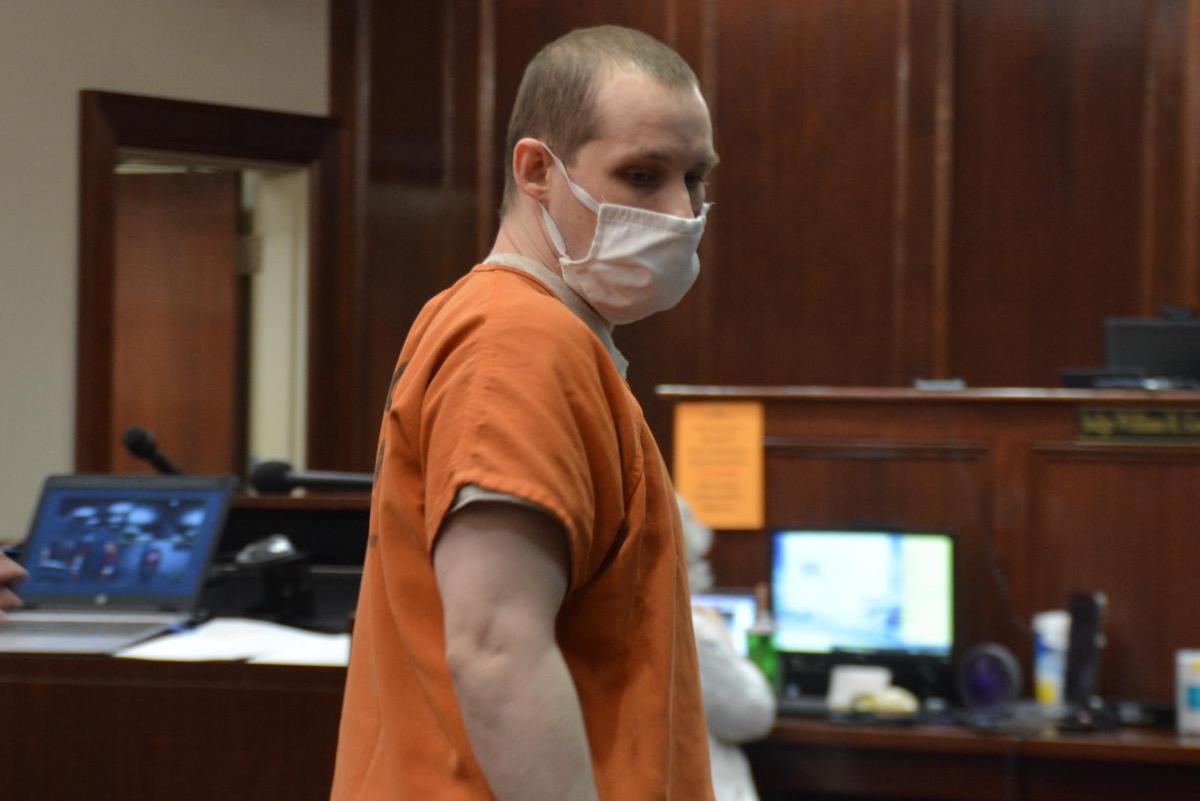CLARKSVILLE, Tenn (CLARKSVILLENOW) – A Clarksville man charged with the triple homicide of his wife and two children had a mental competency hearing in Judge William Goodman’s court on June 9.
Jordan Hazel, 30, is charged with three counts of first-degree murder for the shooting deaths of his 23-year-old wife, Keara Hazel and their two children Kayden Hazel, 3-years-old, and Jaylynn Hazel, 9-months-old.
Clarksville Police responded to the family’s home on Mills Drive on September 14, 2017, at approximately 10:48 a.m. where they discovered the woman and two young children shot to death.
During the investigation, Jordan Hazel admitted to Detective McClintock that he had murdered his family.
Public Defender Roger Nell asked for a dismissal of the case based on his client’s incompetence, to assist in the defense of his trial due to severe mental issues including delusions and hallucinations.
Kimberly Lund, assistant district attorney, countered that Hazel is competent to stand trial but chooses not to assist in the defense of his case.
Following the hearing which lasted approximately seven hours, Judge Goodman said he will be reviewing more evidence and will revisit the case and possibly hand down a judgment on July 13.
Numbers and Gibberish
Nell called an investigator as well as several mental health experts who evaluated Hazel to testify. Jordan Hazel’s mother also took the stand to testify about his mental health.
- Crystal Waltz, an investigator for the Public Defender’s office testified that, since Hazel’s arrest, she’s been unable to gather coherent information from him to assist in his case, despite multiple hours of interviews.
“He was all over the place,” Waltz said about her interviews with him. “Most of the time he wasn’t making sense. ..He was so confident but it didn’t make sense to me.”
Waltz said they’d be having a regular conversation and he’d begin to talk about numbers.
“I couldn’t work the case. He’d say things that were facts to him but it wasn’t rational.”
Waltz said on the third visit, Hazel said “no one listens to him or does what he wants to do,” and refused to participate in the interview.
“We don’t understand him,” Hazel said.
- Cindy Soliz, Hazel’s mother, said her son suffered from drug addiction issues and had been to therapy and mental health facilities in his youth.
Since his arrest for the murder of her grandchildren, she said he had become obsessed with numbers and would speak gibberish at times.

“… The bad conversations, he talks a lot about numbers. He adds the numbers up. Everything he sees is wrapped up in numbers. He’d spell out names and put numbers and he’d write Bible verses and he’d put numbers,” she said.
Soliz said her son had been on psychiatric medication but had stopped taking them when he left the mental institution and went back to the county jail.
She agreed with mental health experts that her son was deeply delusional.
“He tells me they (his family) are coming back,” she said. “He tells me his dad is coming back. His dad died from terminal cancer a month after this happened. I don’t know if he knows his dad is dead.”
Soliz said that Hazel had called her on the night of the triple homicide.
“I attributed it to drugs. The night it happened, he was talking gibberish. Like ‘I went poo, went pee.” I said, ‘What drugs are you on!?’ and he said, ‘I’m not on drugs. You always say I’m on drugs.’ and he hung up on me.”
Psychosis, delusions, and hallucinations
- Dr. Rena Isen, a psychologist at the Middle Tennessee Health Institute who evaluated Hazel, attested to his being incompetent.
Hazel reported delusions, hallucinations, and dreams.

“His delusional focus is him going through some sort of test and he can’t identify what it’s for,” she said. “His delusions are based on him being a special individual whose going through a rite of passage to go to the next level. … He’s received various messages from his environment… He’s never presented himself as trying to make it up.”
For three years he has been consistent in his behavior she said.
“He’s never likely to come out of it,” she said.
- Dr. David Scott Crawford, Hazel’s psychiatrist, diagnosed him with Unspecified Psychotic Disorder with hallucinations, delusions, and psychosis.
Dr. Crawford explained that Hazel could talk about normal things, but could go into his delusions about the government controlling him and God talking to him when explaining the murder of his family.

“…I was struck that given the seriousness of his charges he seemed to be inappropriately bright and cheerful and not particularly bothered by his charges or what’s going on. He wasn’t worried and said, the government would intervene. He wasn’t acting normal,” Dr. Crawford said.
Dr. Crawford said Hazel would try to make connections with numbers and meanings. The number most significant was 12.
He would add and divide numbers and attribute their ‘meaning’ to God.
“It was this elaborate detailed step by step process,” Dr. Crawford said.
The night before the killings, Crawford said Hazel told his mom he was hearing voices and people talking to him through the TV.
Dr. Crawford said he believed Hazel wasn’t faking.
- Vanderbilt psychiatrist, Dr. Stephen Montgomery took the stand and said during a forensic evaluation he too, determined Hazel was incompetent to stand trial due to his mental illness.

“He can’t follow logic,” Dr. Montgomery said. “He was talking about the 700 Club, Bible reenactments, St. B project, medallion. … He believes it wasn’t real people and didn’t happen… He’s delusional. He’s lost contact with reality and it’s been consistent and deals directly with the crime in which he’s been charged.
Competent
- Dr. Matthew Norman was the only witness the state called and testified he spent five hours with Hazel performing tests and doing a forensic evaluation. He did not agree with Dr. Montgomery’s findings.
“I do think he’s competent. I’ve heard all the testimony,” Norman said. “If he chooses, he can rationally help his attorney. It’s obvious. He is malingering or fabricating mental symptoms for gain. This is based on a lot of data points for example what is the past history before the offense. … There’s no evidence of psychosis thoughts documented pre -offense.”
Dr. Norman said his behavior doesn’t match his verbal output.
“He has lots of symptoms and not acting as him being bothered by any of this,” Norman said. “If he believes his wife is not dead, he’d be disgruntled about being on trial at all.”












